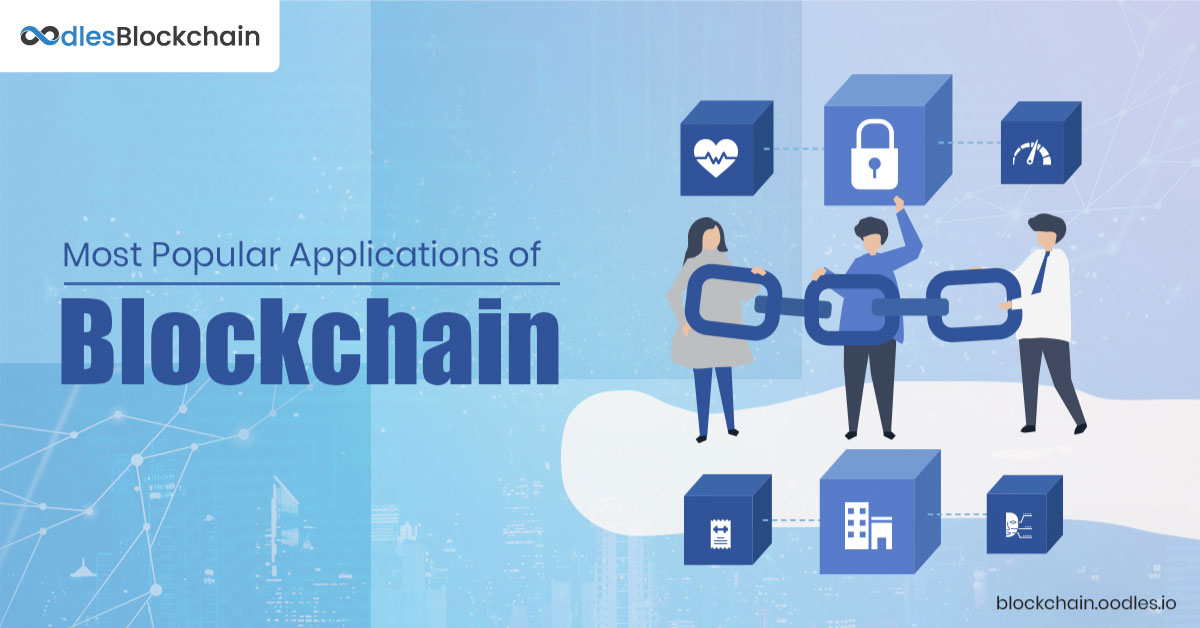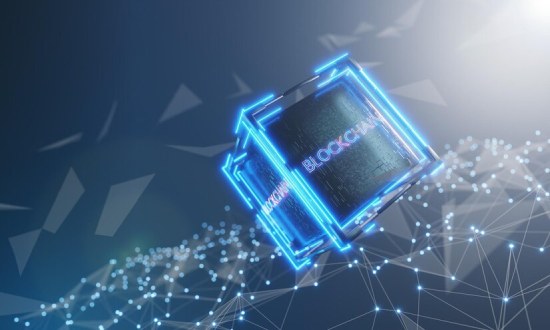-
In layman's terms, it's a distributed ledger, and everyone in the network can have a copy of it Everyone who has a copy can add new records of transactions to this database. However, they cannot change the history that is already in there. It makes a blockchain a great alternative to store data transparently as everyone gets to see what's in it. Visit blockchain development services to explore the latest applications and use cases of the technology.
Application of Blockchains
Cryptocurrencies
When Bitcoin was launched in 2008, it allowed people to make transactions with one another without having to trust any third party like banks. Since then, over 1600 different cryptocurrencies have been created. Also, Check | Blockchain beyond Cryptocurrencies.
Automotive
You might be aware of the odometer fraud. By tweaking the odometer, someone can make a car (or any mode of transportation) appear to be newer and less worn out, resulting in buyers paying more than the actual worth of a vehicle. Although the government tries to tackle this issue by gathering the milage of cars when they conduct a safety inspection, that's significantly not enough. Solution: We can replace the standard odometer with smart ones connected to the internet. Such odometers will write the mileage of the car to a blockchain in a distributed, transparent, and immutable manner. Thus, creating a secure, digital certificate for each car. As we are using a blockchain, no one can tamper with the data, and everyone can see a vehicle's history. Also Read: Blockchain in the Automotive Industry Indeed, such blockchain application is being already developed by Bosch's IoT lab and is currently in the pilot test stage. They are testing it on a fleet of 100 cars in Switzerland and Germany. So, blockchain applications are good at keeping track of things over time.
Notary
Apart from the odometers, you can keep track of things like intellectual property or patents. You can even use a blockchain as a notary. A notary is someone who confirms and verifies signatures on legal documents. However, we can use a blockchain for it. For instance, an online website stampd.io allows adding documents to the Ethereum or Bitcoin blockchain. Once added, you can have permanent proof that you created that at a certain point in time. Much like a notary, although currently, blockchains aren't on the same level as traditional notaries from a legal perspective. Also, Explore | Citigroup Collaborates with Ava Labs for Tokenization PoC
Voting
Today, people vote either on ballot papers or EVM machines that are running proprietary software. Voting on paper is an expensive process and costs a lot of money. Also, electronic voting has security concerns. In recent years, we've seen countries moving away from digital voting and adopting paper again as they fear that electronic votes can get tempered or influenced by hackers. Solution: Instead of paper, we could bring into use blockchains to cast and store votes. Such a system could prove to be transforming as everyone could see and verify the voting count for themselves as well as it would make tampering with votes or the system almost impossible. The Swiss company Agora has already started working on such a system, and it's going to be completely open-source. But there's a myriad of challenges. First, you have to be able to identify and verify voters without compromising their privacy. Secondly, if you provide people the ease to vote from their computers or phones, it's important to consider the fact that those could be made infected with malware designed to tamper with the voting process. And lastly, such a system needs to withstand denial-of-service attacks as it could make the whole thing unusable. Unquestionably, a tough nut to crack but if it becomes a reality, it could lay the foundation for a more transparent, safer, and practical voting system. Let's move further to another area where blockchain applications can make enhancements:
The food industry
The industry could use blockchain technology to track food products from the moment they have been harvested to when they reach the hands of customers. There's a dire need to keep an eye on the foods we're consuming as almost half a million people die because of food-borne diseases. It's due to the time it takes to isolate the food that's causing harm. Blockchain could help us to create a digital certificate for each piece of food, keeping a complete record of where it came from and where it has been. It can have answers to questions like:
- Where was the food harvested/processed?
- How has it been transported?
- What batch does it belong to?
- Who has been in contact with it?
- Was it kept at the appropriate temperature?
- When was it sold?
So, on the detection of contaminated food, we can easily trace it back to its origin and notify other people who bought the same batch of it. Walmart and IBM have partnered to devise such a system which allowed them to track the origin of a box of mangoes within a few seconds, compared to days or weeks using a traditional food tracking system. A similar system could be applied to other industries as well. We could use it to track regular products and tackle counterfeit goods by enabling anyone to validate whether or not the product has come from the manufacturer you think it has. Another use would be to trace packages and shipments by using a blockchain. That's something container shipping giant, Maersk and IBM are working on; creating a decentralized ledger to help make the global trading of goods more efficient. Alright, we have analyzed how blockchain applications keep track of information and verify its integrity. But blockchain's potential can be unlocked if we add Smart Contracts to it. Also, Read | Blockchain in Food Supply Chain Management
Blockchain in Insurance
Insurance companies could use Smart Contracts to verify claims and execute payments. With smart contracts, we can secure our data on a blockchain. For instance, they can enable us to store our medical records on a blockchain and only provide access to doctors by approving with a digital signature. Similarly, you could record personal information and choose what data you want to reveal. For example, ordering alcohol in a bar would require you to prove that you're over the legal drinking age, and with smart contracts, you can deliver the proof without revealing anything else. Or think about collecting royalties for artists. A streaming service could set up two smart contracts: one where users send a monthly subscription to and another that keeps track of what the user has listened to. At the end of each month, the smart contract that holds the subscription fee can automatically release money to artists, based on how many times their songs have listened. Also, Explore | Blockchain Use Cases for Supply Chain Management
In Summary
So, these are the ways blockchain applications can come into use in the real world. The blog covers only the basics of how blockchain applications can be used, and it's by no means a complete list. That would make a very long blog as there is so much happening in this space. Let me know in the comments below what your favorite application of blockchain technology is. Also, if you are interested in developing your project using blockchain technology, connect with our blockchain developers to get started.

Our Offices
INDIA
Emaar Digital Greens, Sector 61,
Gurugram, Haryana
122011.
Welldone Tech Park,
Sector 48, Sohna road,
Gurugram, Haryana
122018.














